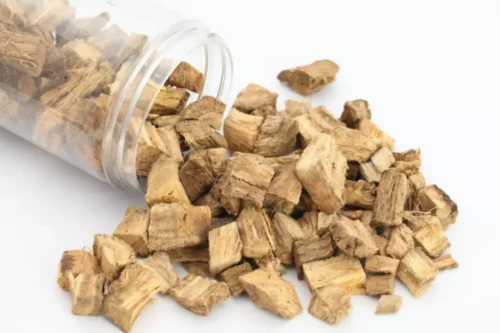
Ultimately, having a robust social support system significantly increases the likelihood of success in achieving lasting recovery. A support network in recovery consists of friends, family, professionals, and others in recovery who provide encouragement and help you stay focused on your recovery goals. Surrounding yourself with a strong support network is crucial for your journey to recovery. To create an effective sober https://ecosoberhouse.com/ network, it is crucial to distance oneself from old friendships or relationships that are still involved in substance use or not supportive of recovery. Building a sober network requires a selective and intentional process of surrounding oneself with individuals who are focused on achieving lasting recovery. By removing negative influences, individuals can minimize the risk of temptation and reduce the likelihood of relapse.
Safe and Effective Benzodiazepine Detox: Why Medical Supervision Is Crucial

Likewise, during these support groups, you can gain motivation from others who may be further along their recovery journey. Before discussing how you can build your own sober support network, it’s important to understand what a sober support network is. Essentially, your sober support network includes any trusted family members, friends, community groups, addiction specialists, and more who can support you along your sobriety journey. Your support network will provide you more than a group of people you can call.
- Tempest offers 24/7 support and access to coaches that can help personalize a plan and help you stay on track to achieve recovery from addiction.
- The three pillars of sobriety are therapy, support, and education, which are crucial for overcoming the stigma of substance use disorder with empathy and understanding.
- Discover post-cocaine withdrawal recovery strategies and potential risks for a fresh start.
- However, in some cases, family members may have addictions or engage in behavior that may have contributed to your addiction prior to you entering rehab.
- SMART Recovery offers global support meetings that provide a platform for individuals to connect with others facing similar challenges.
- Being part of a sober support network offers opportunities for social interaction and engagement.
Celebrities Overcoming Addiction Inspiring Journeys Of Hope
- Always recognize the people you have asked to support you when they behave in a manner that is helpful to you or when they otherwise make you feel valued and encouraged as you navigate your recovery.
- Sober living communities give you resources and an environment around other recovering addicts so you can feel supported transitioning back into your everyday life.
- Our goal is to provide all people struggling with addiction access to a fulfilling and healthy lifestyle.
- We have covered a lot of great Apps here on the Mountainside blog, but if you are anything like us, our favorite part of being connected is connecting with other people on social networks.
It’s important to reciprocate support, be open to feedback, and continue seeking help when needed. Support networks are multifaceted, including family, friends, therapists, and peers in recovery. Each component contributes uniquely to emotional support, motivation, and companionship.

The Role of Social Support in Sobriety
If possible, you should continue to work with a therapist or counselor and other health care practitioners to receive guidance and monitor your overall well-being as you continue in recovery. Your addiction and health care professionals are people you can call when you have general questions or concerns about your sobriety and health. People with whom you already have a relationship may be good candidates to be in your support network. Your family members have known you longer than anyone else and have likely witnessed your battle against substance abuse and addiction first-hand. However, in some cases, family members may have addictions or engage in behavior that may have contributed to your addiction prior to you entering rehab. If your family members are unable to support and encourage you in your life of recovery, you can build a more supportive network through other potentially more reliable means.
Selective Social Circle
These findings emphasize the effectiveness of peer support groups in preventing relapse and promoting sustained recovery. You can build a community in recovery by shifting your perspective from “I” to “we” and engaging in group activities and discussions where individuals can share their experiences, strength, and hope. Acknowledging and rewarding progress is key to sustaining motivation throughout the recovery process. It’s important to acknowledge small victories and personal growth, as these contribute to your overall progress in the recovery journey.
- Essentially, your sober support network includes any trusted family members, friends, community groups, addiction specialists, and more who can support you along your sobriety journey.
- For example, SMART Recovery is a group that appeals to people with whom the spiritual nature of the traditional 12-Step program does not resonate.
- Which one you choose will ultimately depend on your personal needs and goals.
- Self-Management and Recovery Training (SMART) offers global support meetings for recovery from addiction through self-empowerment.
Pathways Recovery
Whether you are looking for motivation or people to keep you accountable, your sober support network provides constant love and support as you begin to take back control over your life. Finding support while you’re dealing with addiction or alcohol use disorder can be challenging and overwhelming. Friends and family members may offer help but a structured group or program can be more effective in providing a plan that can keep you on track toward your goal of recovery.
How Long Does Meth Detox Take? A Guide to Withdrawal Stages
For example, if you used to do drugs with a group of friends, these friends who are still abusing drugs themselves should not be part of your sober support network as they can increase your risk of relapsing. As you connect with others who are in recovery, you will likely find yourself feeling more hopeful, optimistic, and inspired about your own life in treatment. In addition to connecting with others who are in recovery, sharing your experiences with trusted people who have never experienced addiction will gradually reduce the social stigma that many addicts encounter. Working to build and expand your support network will help you become a healthier, more active member of your community. The path of recovery generally includes a variety of counselors, doctors, and advisors. These professionals play an important role in helping you maintain your life of recovery and stay healthy.
How Medication-Assisted Treatment Helps with Heroin Detox

Having your sober support network written down can be helpful for easy reference, and it can serve as a lifeline if ‘things’ hit the fan. Many sober specific networks have sprung up to meet the needs of the community. While many of them are a lot like other larger social networks, they have extra features and focused communities that make signing up for another social network worth it. And unlike other networks you might already be on, sober social networks put emphasis on allowing users to remain anonymous and protect their privacy. Because most members sober network of your support network will likely be learning how to support someone in recovery for the first time, they will need to know when they doing things correctly.

Addiction In Pop Culture Misunderstood Myths And Realities
Prioritizing sober hobbies like yoga, meditation, or volunteering can create opportunities to connect with like-minded individuals. Additionally, participating in community events and support groups helps build a Alcoholics Anonymous network of accountability that reinforces your commitment to sobriety. By building a robust sober support network, you can reconnect with supportive friends and family, reduce feelings of loneliness, and create meaningful connections. Being part of a group can help you overcome obstacles, reducing feelings of loneliness, judgment, and isolation. More than just a safety net, a strong sober support network also equips you with essential life skills to rebuild damaged relationships and foster deeper, more meaningful connections. Last but not least, just because you receive addiction treatment doesn’t mean you can never ask for help from a professional again.
Confidence in Coping Strategies
It is crucial to begin integrating self-care practices into your daily routine as early as possible to facilitate the healing of your body, mind, and spirit from the impact of substance abuse. Fostering a connection with family and friends who empathize with your struggles can help alleviate feelings of isolation. Depending on your peers and loved ones, your sober support system can also help out in practical matters and provide insights into areas of life we might not be familiar with. In some instances, this might be as simple as helping with how to properly wash laundry, or in others as complex as helping with doing taxes. We believe in you and encourage and support you during addiction treatment. There are recovery groups for people of different religions, cultural backgrounds, and professions in addition to more general recovery groups.
 لراوبر ویب پاڼه لراوبر يو افغان – تازه خبرونه
لراوبر ویب پاڼه لراوبر يو افغان – تازه خبرونه